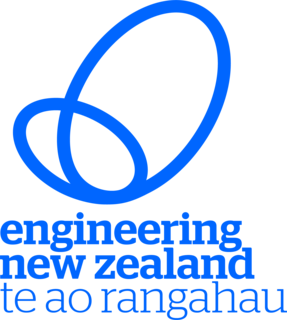| Abbreviation | IAgrE |
|---|---|
| Formation | 1938 |
| Legal status | Not-for-profit organisation |
| Purpose | Represents professional Agricultural Engineers in the UK |
| Location |
|
Region served | UK |
Membership | Agricultural Engineers |
Chief Executive Officer | Charles Nicklin CEng MIAgrE MIMechE |
Main organ | IAgrE Council |
| Affiliations | European Society of Agricultural Engineers |
| Website | IAgrE |
The Institution of Agricultural Engineers (IAgrE) is a British professional engineering institution founded in 1938. It is licensed by the Engineering Council to assess candidates for inclusion on its Register of professional Engineers and Technicians.
The IAgrE is the professional body for engineers, scientists, technologists and managers in agricultural and allied landbased industries, including forestry, food engineering and technology, amenity, renewable energy, horticulture and the environment.
As a founding Constituent Body (CB) of the Society for the Environment, IAgrE also assesses suitably qualified and experienced candidates for registration as Chartered Environmentalists (CEnv).
IAgrE also runs two technician accreditation schemes for the sector:
Professional certification, trade certification, or professional designation, often called simply certification or qualification, is a designation earned by a person to assure qualification to perform a job or task. Not all certifications that use post-nominal letters are an acknowledgement of educational achievement, or an agency appointed to safeguard the public interest.
Regulation and licensure in engineering is established by various jurisdictions of the world to encourage life, public welfare, safety, well-being, then environment and other interests of the general public and to define the licensure process through which an engineer becomes licensed to practice engineering and to provide engineering professional services and engineered product to the public.
The City and Guilds of London Institute is an educational organisation in the United Kingdom. Founded on 11 November 1878 by the City of London and 16 livery companies – to develop a national system of technical education, the institute has been operating under royal charter (RC117), granted by Queen Victoria, since 1900. The Prince of Wales, later King Edward VII, was appointed the first president of the institute.

The Institution of Civil Engineers (ICE) is an independent professional association for civil engineers and a charitable body in the United Kingdom. Based in London, ICE has over 92,000 members, of whom three-quarters are located in the UK, while the rest are located in more than 150 other countries. The ICE aims to support the civil engineering profession by offering professional qualification, promoting education, maintaining professional ethics, and liaising with industry, academia and government. Under its commercial arm, it delivers training, recruitment, publishing and contract services. As a professional body, ICE aims to support and promote professional learning, managing professional ethics and safeguarding the status of engineers, and representing the interests of the profession in dealings with government, etc. It sets standards for membership of the body; works with industry and academia to progress engineering standards and advises on education and training curricula.

An engineering technologist is a professional trained in certain aspects of development and implementation of a respective area of technology. Engineering technology education is even more applied and less theoretical than engineering education, though in a broad sense both have a focus on practical application. Engineering technologists often assist engineers but after years of experience, they can also become engineers. Like engineers, areas where engineering technologists can work include product design, fabrication and testing. Also as with engineers, engineering technologists sometimes rise to senior management positions in industry or become entrepreneurs.

The Institution of Engineers of Ireland or the IEI, is the second oldest Engineering Society on the islands of Great Britain and Ireland, and was established in 1835. The institution primarily represents members based in Ireland.

The Institution of Engineering and Technology (IET) is a multidisciplinary professional engineering institution. The IET was formed in 2006 from two separate institutions: the Institution of Electrical Engineers (IEE), dating back to 1871, and the Institution of Incorporated Engineers (IIE) dating back to 1884. Its worldwide membership is currently in excess of 158,000 in 153 countries. The IET's main offices are in Savoy Place in London, England, and at Michael Faraday House in Stevenage, England.
The Engineering Council is the UK's regulatory authority for registration of Chartered and Incorporated engineers and engineering technician, holding a register of these and providing advice to students, engineers, employers and academic institutions on the standards for registration and procedures for registration. It is also responsible for the accreditation of educational and training programs, delegating this responsibility to licensed member institutions.

Engineering New Zealand Te Ao Rangahau is a not-for-profit professional body that promotes the integrity and interests of members, the profession, and the industry. It seeks to "bring engineering to life" and has more than 20,000 members.
The Society for the Environment (SocEnv) is an umbrella body for environmental organisations in the UK. Its primary function is the licensing of its member institutions to confer chartered status on sustainability and environmental professionals worldwide. It was established in response to the need to encourage the highest levels of professionalism in the field of sustainability.

An engineering technician is a professional trained in skills and techniques related to a specific branch of technology, with a practical understanding of the relevant engineering concepts. Engineering technicians often assist engineers and engineering technologists in projects relating to research and development, or focus on post-development activities like implementation or operation. An engineering technician is between a skilled craft worker and an engineering technologist.
Chartered Environmentalist (CEnv) is a professional qualification in the United Kingdom that is awarded by the Society for the Environment through its 24 Licensed member organisations.

The Chartered Institution of Building Services Engineers is an international professional engineering association based in London, United Kingdom that represents building services engineers, also commonly known as mechanical and electrical engineers, architectural engineers, technical building services engineers, building engineers, or facilities and services planning engineers. It is a full member of the Construction Industry Council, and is consulted by government on matters relating to construction, engineering and sustainability. It is also licensed by the Engineering Council to assess candidates for inclusion on its Register of Professional Engineers.
The Institute of Cast Metals Engineers (ICME), originally the British Foundrymen's Association is a British professional engineering institution founded in 1904. It publishes the Foundry Trade Journal, which was established in 1902.

The Institution of Chemical Engineers (IChemE) is a global professional engineering institution with over 33,000 members worldwide. It was founded in 1922 and awarded a Royal Charter in 1957.
The Institution of Engineering Designers (IED) is a British professional engineering institution founded in 1945. The IED is the UK’s only professional body representing those working in the fields of Engineering and Technological Product Design. The membership of the institution work in a diverse range of industries that include: product design and manufacturing; architectural design and construction; mechanical, automotive and aircraft design, design education, IT and computing. The IED is licensed to award three Charterships, including Chartered Technological Product Designer.
The Society of Environmental Engineers (SEE) was a British professional engineering institution founded in 1959, which ceased operations in 2019. It was licensed by the Engineering Council UK to assess candidates for inclusion on ECUK's Register of Professional Engineers and Technicians at CEng, IEng and Eng Tech levels. It was also licensed by the Society for the Environment (SocEnv) to assess candidates for CEnv. The Society's Membership Journal "Environmental Engineering" was published six times a year by the Society's partner Concorde Publishing Ltd, along with the journal's digital and online editions. Members also received other technology focused supplements including Test House Directory. Members of SEE were invited to transfer membership to the Society of Operations Engineers, free of charge, in 2019.
Maintenance Engineering is the discipline and profession of applying engineering concepts for the optimization of equipment, procedures, and departmental budgets to achieve better maintainability, reliability, and availability of equipment.
In the United Kingdom, a Chartered Engineer (CEng) is an engineer registered with the UK's regulatory body for the engineering profession, the Engineering Council. Chartered Engineers are degree-qualified or can demonstrate equivalent work-based learning and have gained the appropriate professional competencies through education and working experience. Demonstration of competence is defined in the UK Standard for Professional Engineering Competence, assessed through professional review of academic qualifications and professional development. Formal, non-formal and informal learning can be assessed. The title Chartered Engineer is protected in the UK under law by means of the Engineering Council’s Royal Charter and Bye-laws. As of 2019 there are approximately 180,000 engineers registered as a Chartered Engineer. Chartered Engineers are registered through Professional Engineering Institutions (PEIs) licensed by the Engineering Council which are relevant to their industry or specialism.